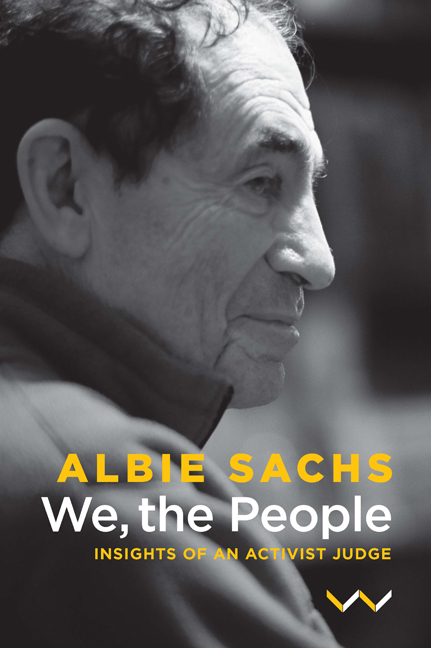Book contents
- Frontmatter
- Acknowledgements
- Miscellaneous Frontmatter
- Contents
- Figures
- Introduction
- 1 In the Beginning
- 2 Hope and Caution in Exile
- 3 We Have to Mistrust Ourselves
- 4 Inventing A Constitution
- 5 With Clean Hands and Without Secrets
- 6 Reconciling the Past and the Future
- 7 Living Constitutional Law and Ubuntu
- 8 More than Crumbs from the Table: Enforcing Social and Economic Rights
- 9 Struggle Continues
- 10 Are the Beautiful People Born?
- Cases Cited
- Sources
- Index
- Frontmatter
- Acknowledgements
- Miscellaneous Frontmatter
- Contents
- Figures
- Introduction
- 1 In the Beginning
- 2 Hope and Caution in Exile
- 3 We Have to Mistrust Ourselves
- 4 Inventing A Constitution
- 5 With Clean Hands and Without Secrets
- 6 Reconciling the Past and the Future
- 7 Living Constitutional Law and Ubuntu
- 8 More than Crumbs from the Table: Enforcing Social and Economic Rights
- 9 Struggle Continues
- 10 Are the Beautiful People Born?
- Cases Cited
- Sources
- Index
Summary
It was 1990; there was great excitement. Mandela had been released and exiles, myself among them, were returning to South Africa. I was invited to meet many different groups. One of them was Disabled People South Africa (DPSA).
I was quite startled as I walked in to meet the group. The room was full of people, maybe fifteen or twenty, living with different disabilities. I was introduced to a white man who was blind. I shook his proffered hand and learnt that he was the chairperson of the DPSA. Then I met a black guy in a wheelchair, who, I was told, had been struck by a police bullet and was now the general secretary of the DPSA. I discovered that the host, who was without hearing, came from a comfortable white family, and that I knew her dad, a well-known cartoonist, and her sister, a prominent feminist law teacher. People were rushing to the kitchen for food and drinks. A black man without arms was being fed by his wife. There was a white guy with a withered leg. And there was me. They surrounded me exuberantly. Somebody said: ‘We were so excited when we heard you were blown up, now we have someone on the national executive of the ANC’.
Then they asked me straight out: ‘What should we do, what should our strategy be?’ It was an important moment for me. What struck me straight away and became part of my emotional turbulence, was that this was South Africa. These were our people, this was our nation. Black, white, brown, young, old, poor, wealthy, all the diverse people of our country were in that room. What they had in common was the fact that they were different. They looked different, yet each was different in his/her own way. A phrase came into my head, and it has stayed there ever since: ‘Here is the democracy of the disabled’.
Coupled with that was another strong, unexpected discovery – the irrelevance of the origin of the disability. It didn't matter at all how Mabuso had come to be shot by the police. Or why William was blind, whether he had lost his sight heroically in struggle, or driving when drunk, or it had been something that he had been born with or the result of disease. I wasn't even curious. It didn't matter at all.
- Type
- Chapter
- Information
- We, the PeopleInsights of an Activist Judge, pp. 237 - 288Publisher: Wits University PressPrint publication year: 2016



